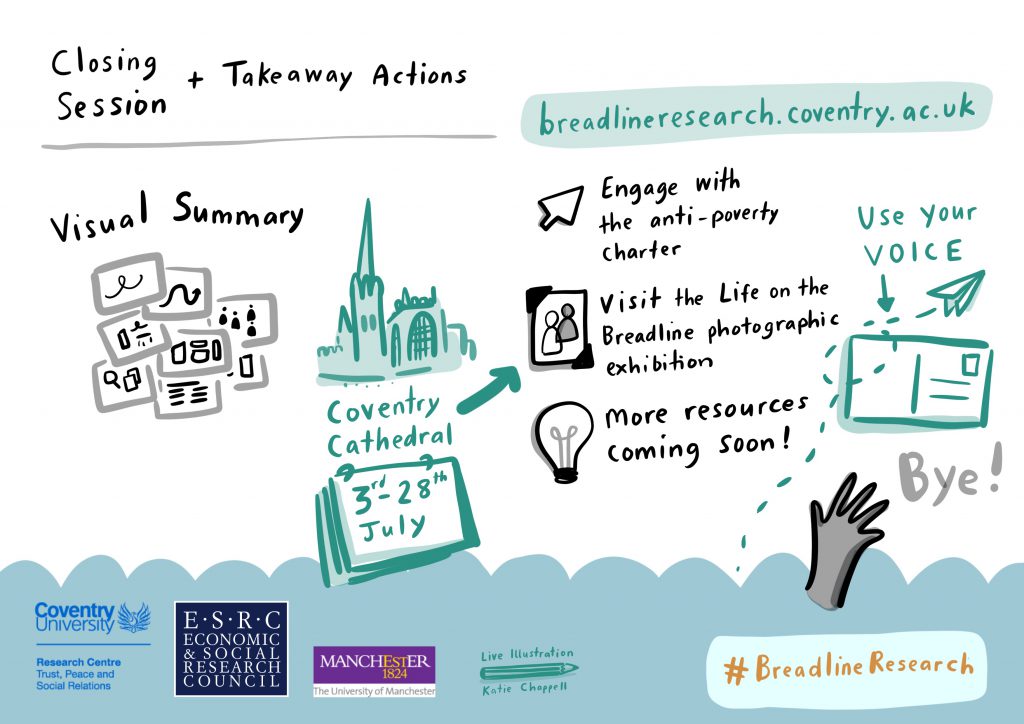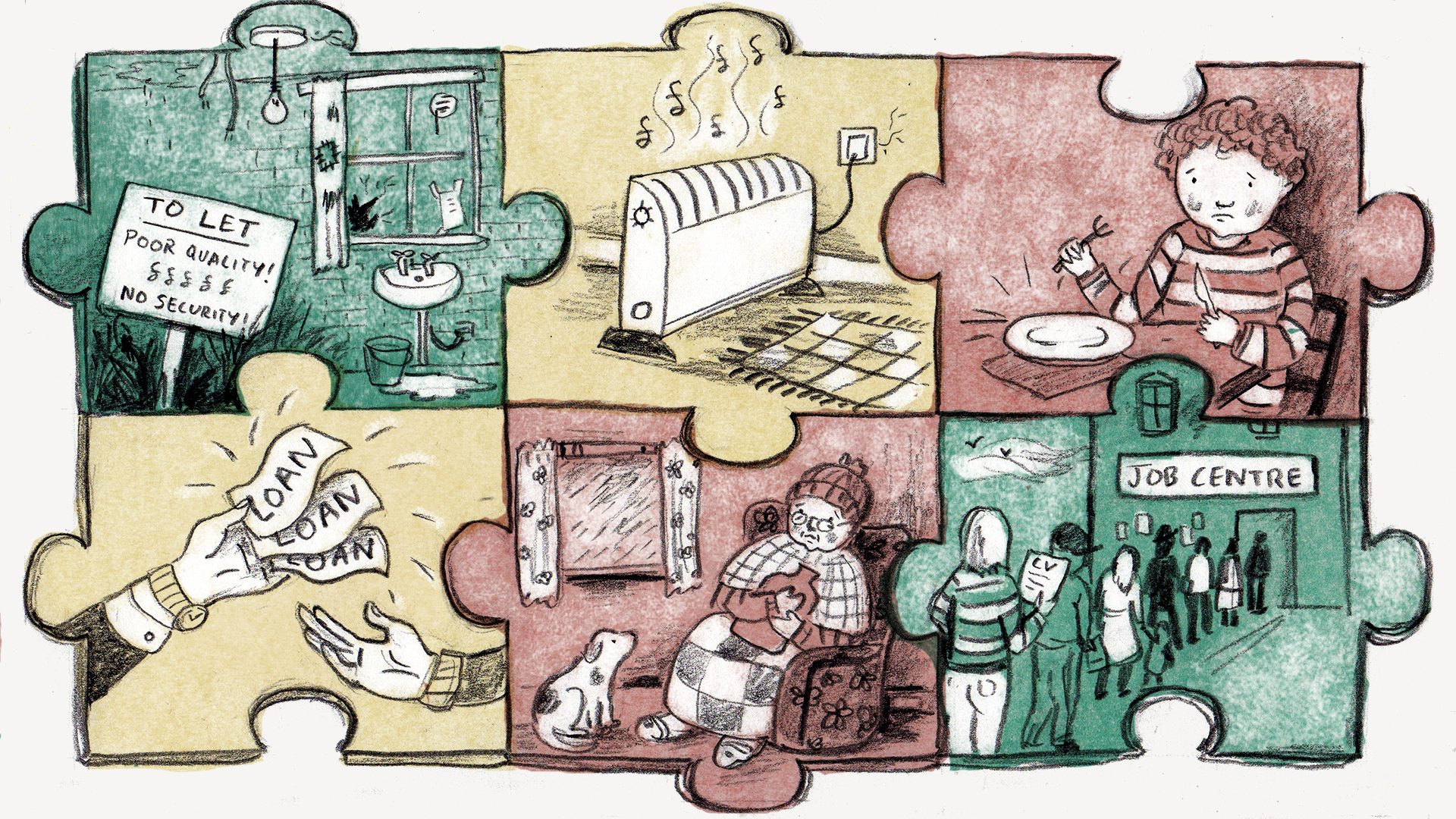
End of project conference resources
The Life on the Breadline end of project conference took place on 24th and 25th June 2021. Below are recordings and resources from the conference.
We’d love to hear your feedback on this resource through this quick form.
Day 1 - 24th June 2021
Conference Opening Session
To start the conference, Life on the Breadline’s Chris Shannahan and Stephanie Denning discussed the different meanings of austerity that have arisen during the three years of the Breadline research, before outlining the headline research findings.
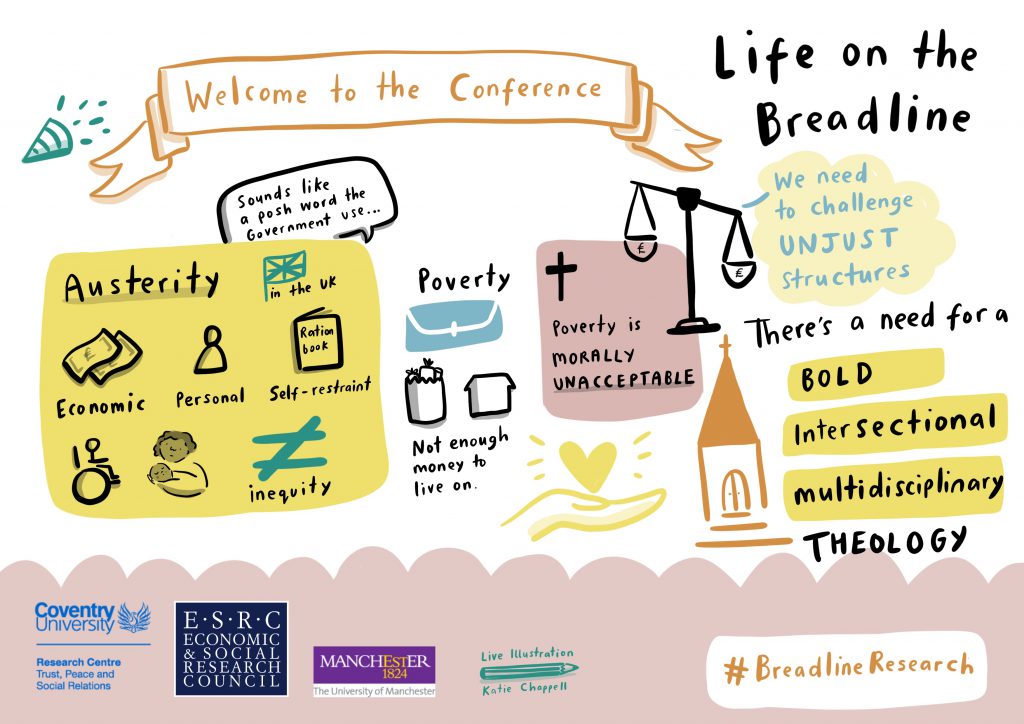
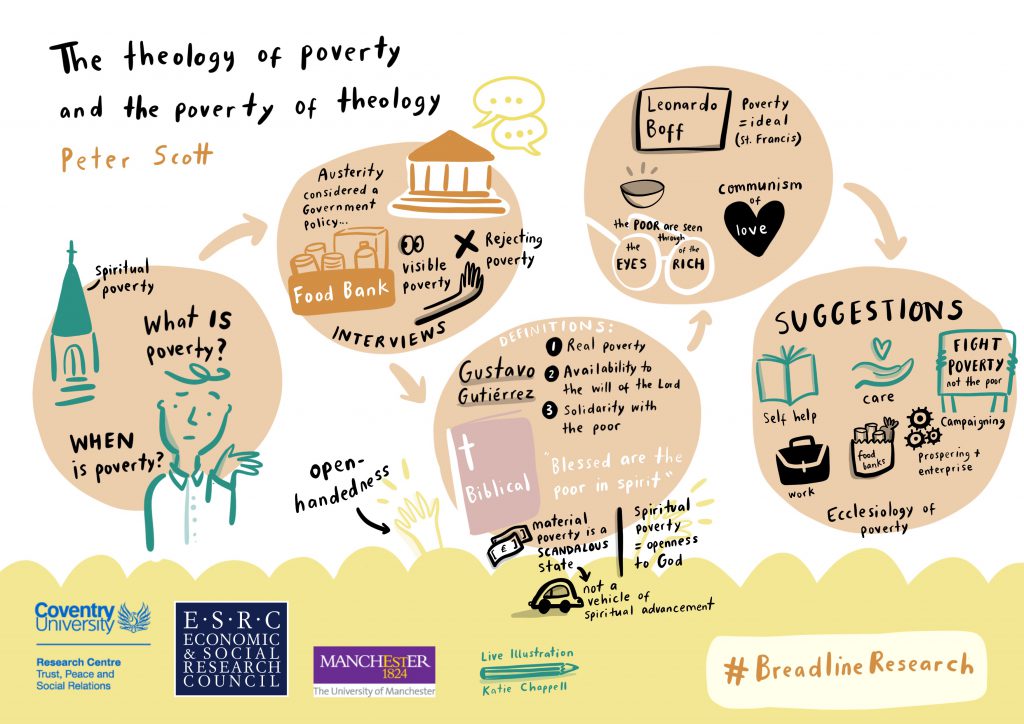
The theology of poverty and the poverty of theology
In this session, Peter Scott engaged with the project’s research findings in terms of the theology of poverty, and the poverty of theology. What theologies are operative in some church discourses around poverty and austerity? What might be learned from this analysis towards a (re)articulation of a contemporary theology of poverty?
God Don’t like Poverty: Black Church, Black Theology and Austerity
In this session, Robert Beckford reflected on some of the research findings from engagement with black (Caribbean) church leaders and food bank providers. Beckford argued that the memory of ‘historic austerities’ conditions the Black Church response. Therefore, the answer to a decade of austerity is negotiated by a longstanding Black Atlantic theology of elevation. The elevation modality is reconfigured as a Black Christian protestant ethic and mediated by a love for community or ‘kincraft.’ These modalities underline diasporic retention of suspicion towards the postcolonial state, Christian-Garveyism and denominational surrogacy.
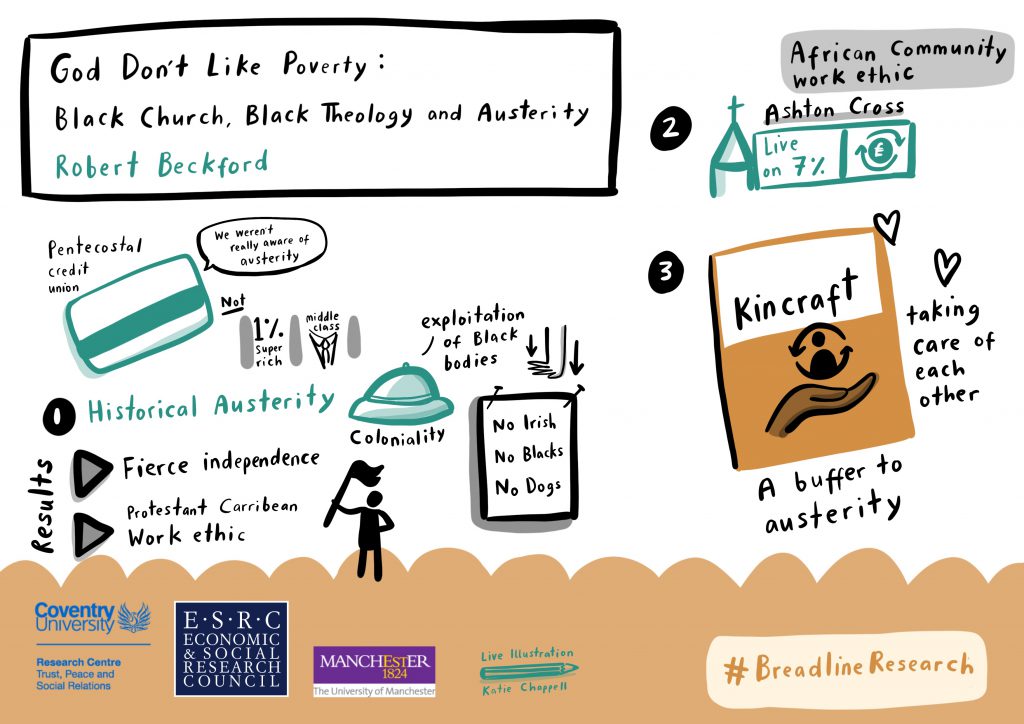
World Café Workshop – Faith-Based Responses to Poverty in the Context of Austerity
This interactive session used a world café style to facilitate small group discussions via Zoom breakout rooms for conference participants to discuss together different faith-based responses to UK poverty in the context of austerity.
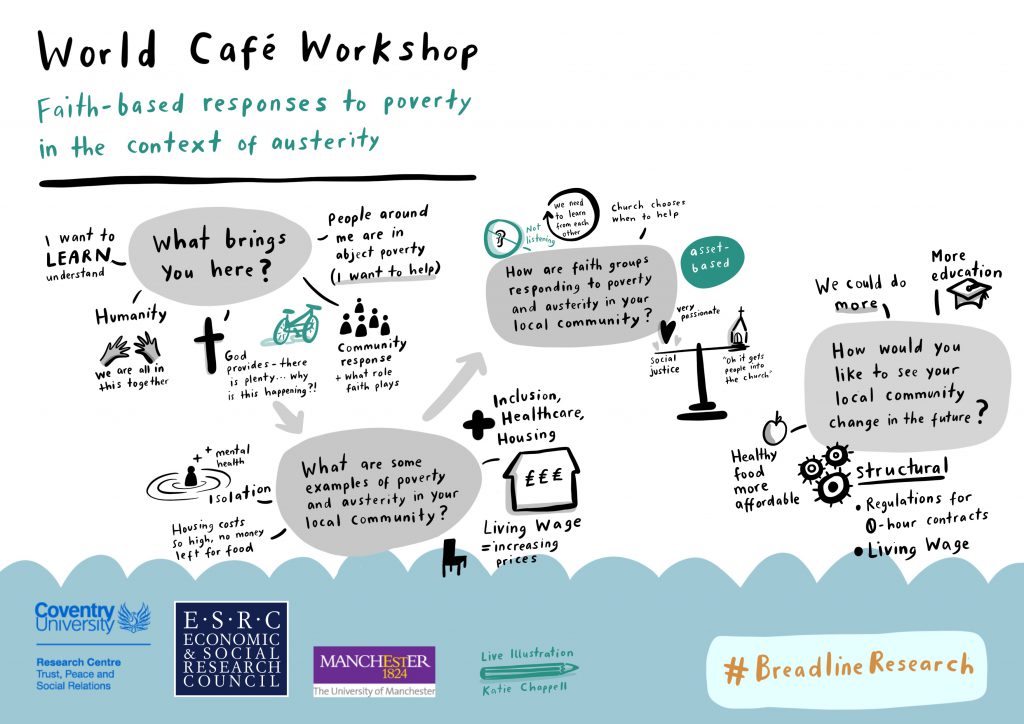
Researching Poverty Workshop
How can UK poverty sensitively and empirically be researched? This interactive session led by Chris and Stephanie responded to this question. First, Chris and Stephanie will discuss the multidisciplinary approach undertaken in the Life on the Breadline research which has combined theology with the social sciences. Breakout rooms with academics, church leaders and practitioners, then discussed how to research poverty collaboratively, concluding with take-away reflections.
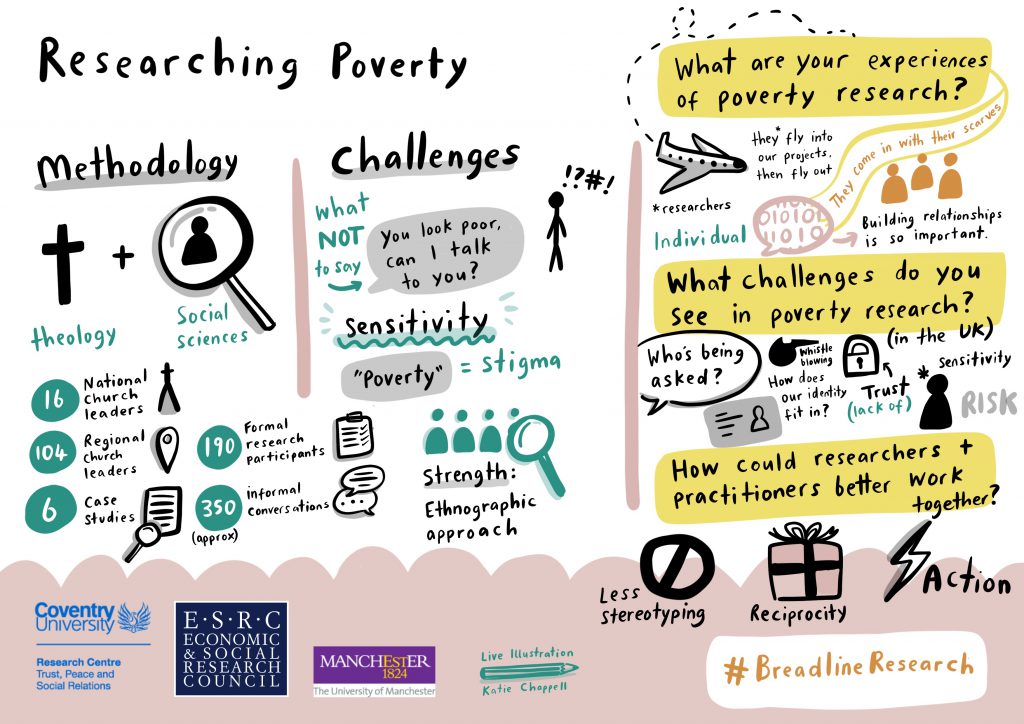
Guest speaker (Dr Naomi Maynard, Together Liverpool and Feeding Liverpool)
To close the first day of the conference, we heard from guest speaker Dr Naomi Maynard. Naomi is Food Security Lead Executive at Together Liverpool, the Network Coordinator of Feeding Liverpool, Senior Researcher at Church Army, an independent researcher, and a volunteer at her local food pantry. Naomi drew on this wealth of experience to reflect on the Life on the Breadline research findings.
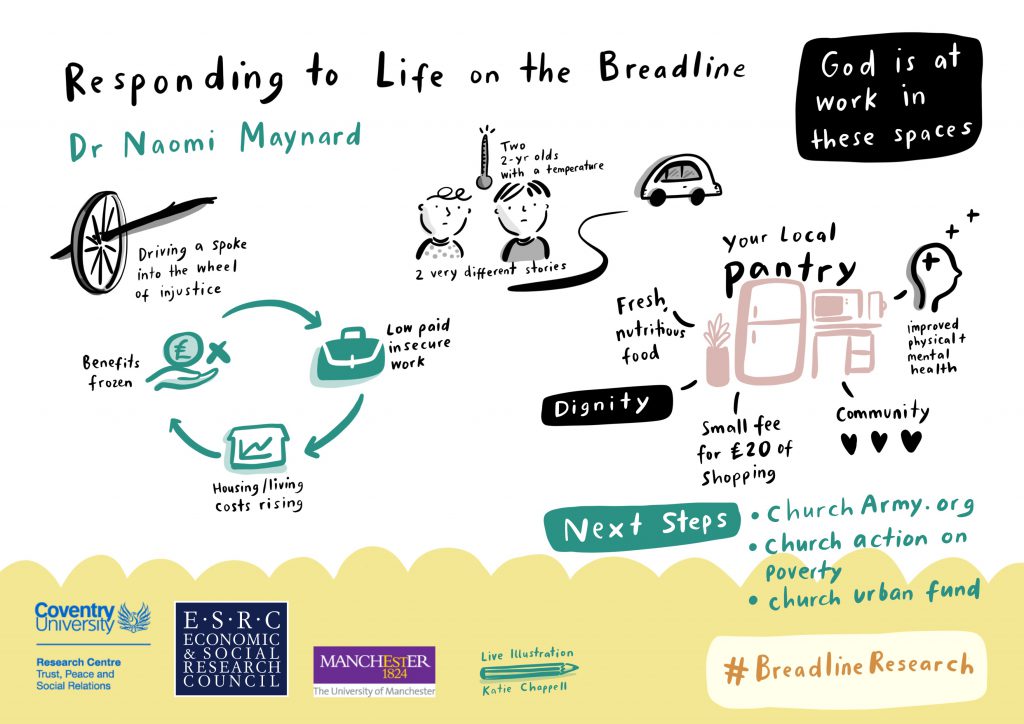
Day 2 - 25th June 2021
Guest speaker (Professor Anthony Reddie, University of Oxford)
To start the second day of the conference, we heard from guest speaker Professor Anthony Reddie from the University of Oxford and the University of South Africa. Anthony is a renowned Black theologian, making him ideally placed to reflect on race and austerity in the Life on the Breadline research findings.
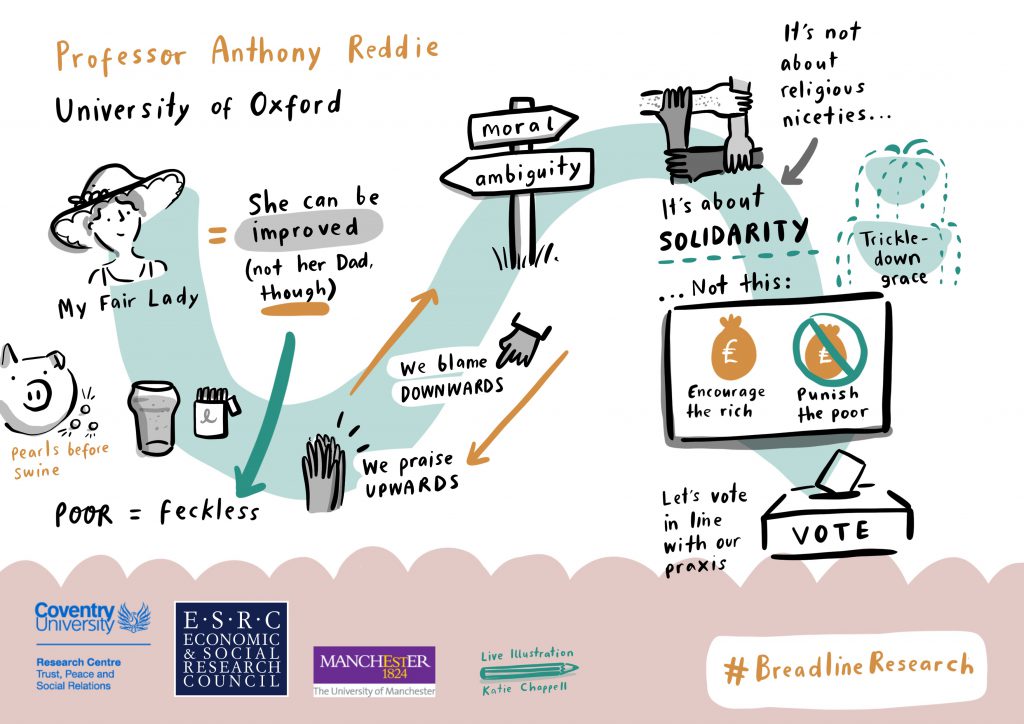
The Grenfell 72: From Lament and Trauma to a Theology of Housing Justice
In this session Chris Shannahan reflected on the project’s research findings in terms of poverty, housing justice, and the Church. He drew on the example of the Grenfell Tower fire to illustrate the structural and intersectional relationship between austerity age poverty, poor housing and housing justice as and the challenges this poses to contextual theology.
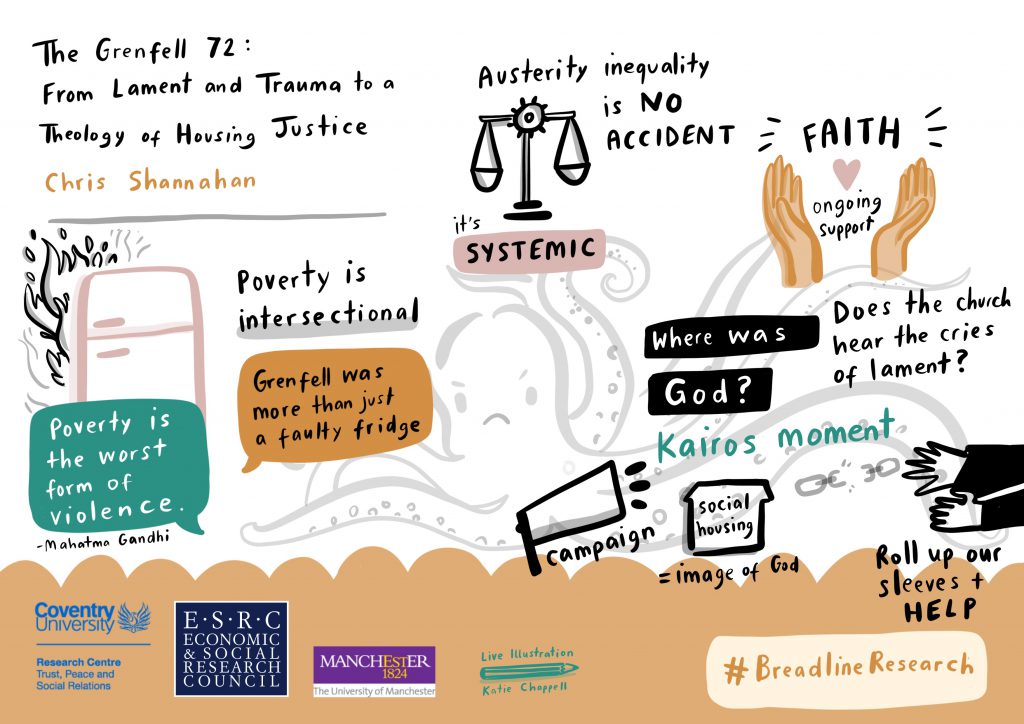
Three Foodbanks in a Decade of Austerity: Foodbank Affective Atmospheres
In this session, Stephanie responded to a gap in understanding collective experiences of poverty by analysing the affective atmospheres at three foodbanks in two British cities in 2014 and 2019. Drawing on ethnographies at the three foodbanks, it approaches affective atmospheres through Spinoza and a focus on capacity. Overall, the paper argued that affective atmospheres at the foodbanks were formed by an everchanging relation between capacities in the past, present, and anticipated future, and the ongoing context of austerity.
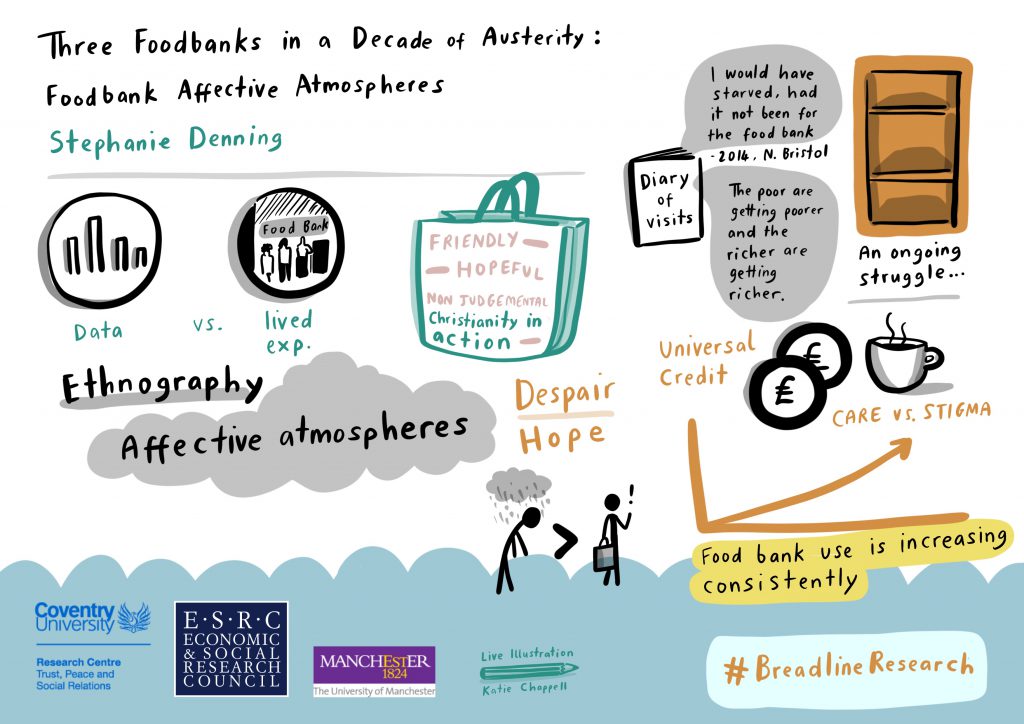
Intersectionality, austerity, and youth crime
An exploration of intersectional approaches to austerity with special reference to the “Swords into Ploughshares” video resource.
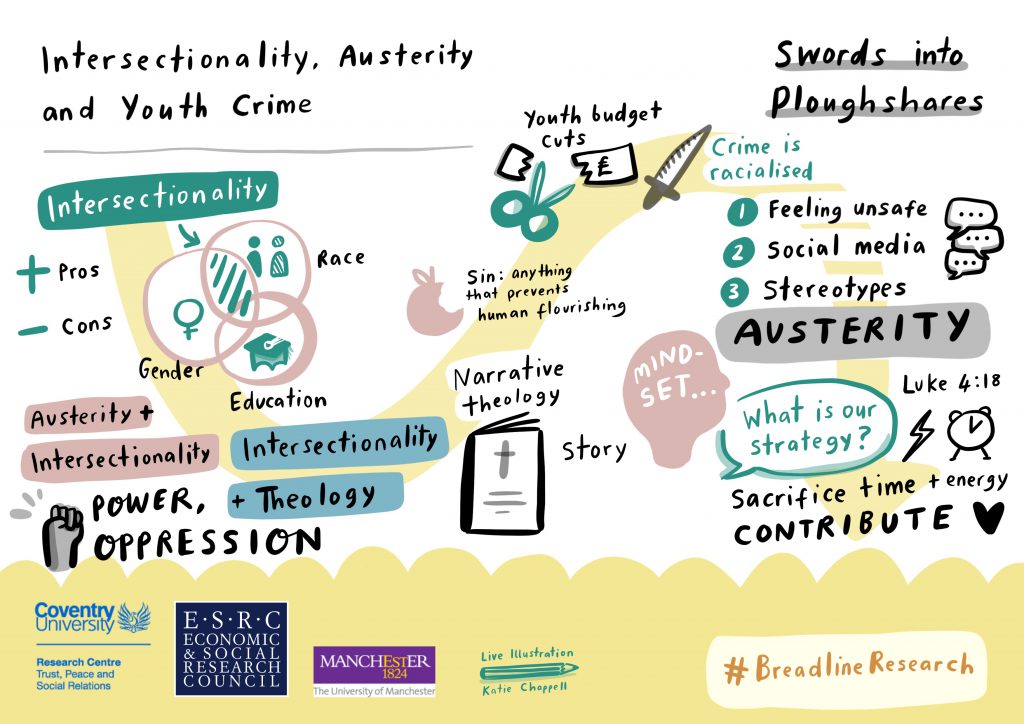
“I believe in building people up”: Asset-Based Community Development (ABCD) Workshop
ABCD is a community movement that originated in the USA which emphasises principles of focussing on gifts and assets rather than deficits, and on relationships at the neighbourhood level. In doing so, ABCD starts from what is ‘strong’ rather than ‘wrong’ in order to work towards community transformation. In this interactive workshop we combined small group discussions with hearing from community leaders and local residents of the Firs and Bromford estate in Birmingham – one of the Life on the Breadline case studies – to hear about their implementation of ABCD on the estate.
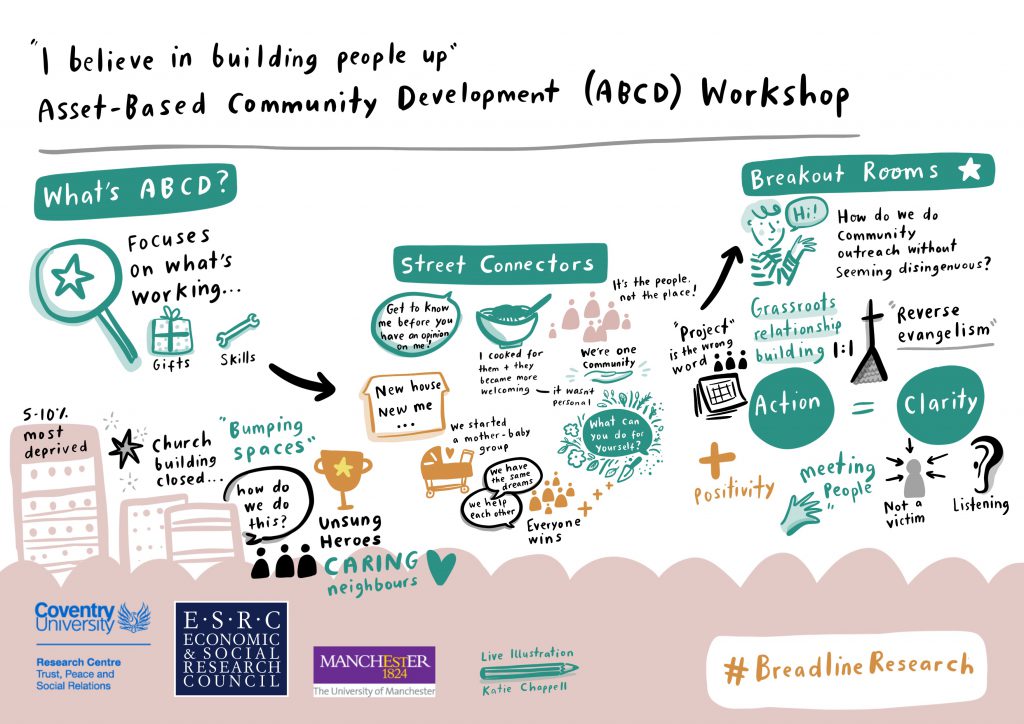
Life on the Breadline Anti-Poverty Charter Launch
This session launched the Anti-Poverty Charter which has been developed collaboratively with church leaders, practitioners, and Life on the Breadline research participants. The charter is an action-orientated statement of the shared values that motivate and shape Christian action on poverty and inequality.
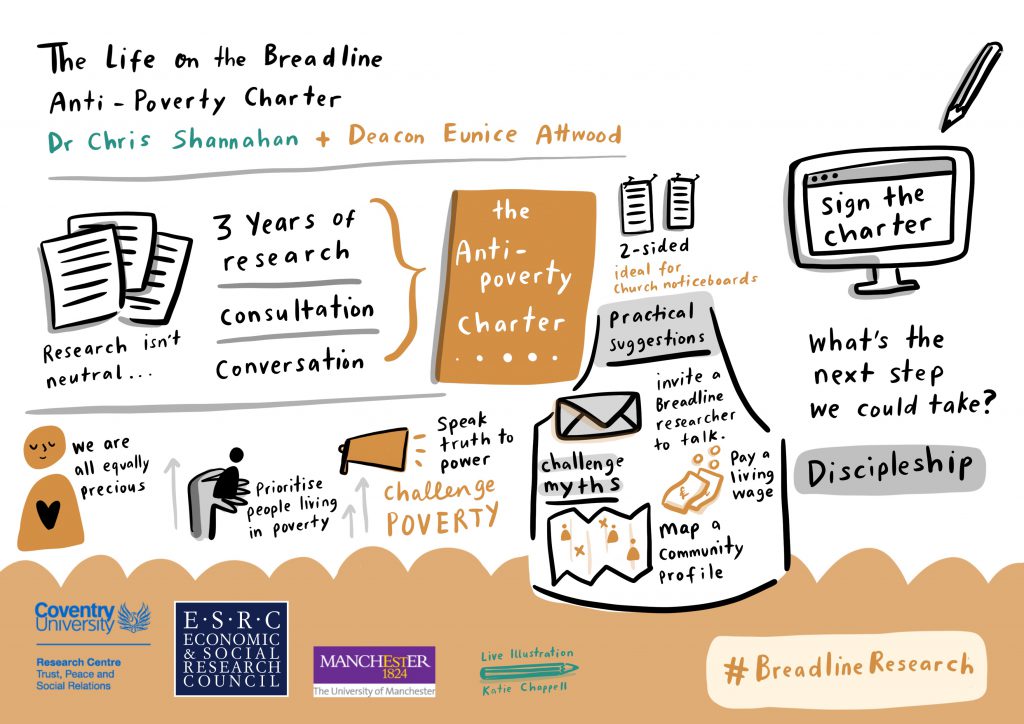
Closing session with takeaway actions
This session drew together the sessions over the two days of the conference, and formulated take-actions for conference participants.
